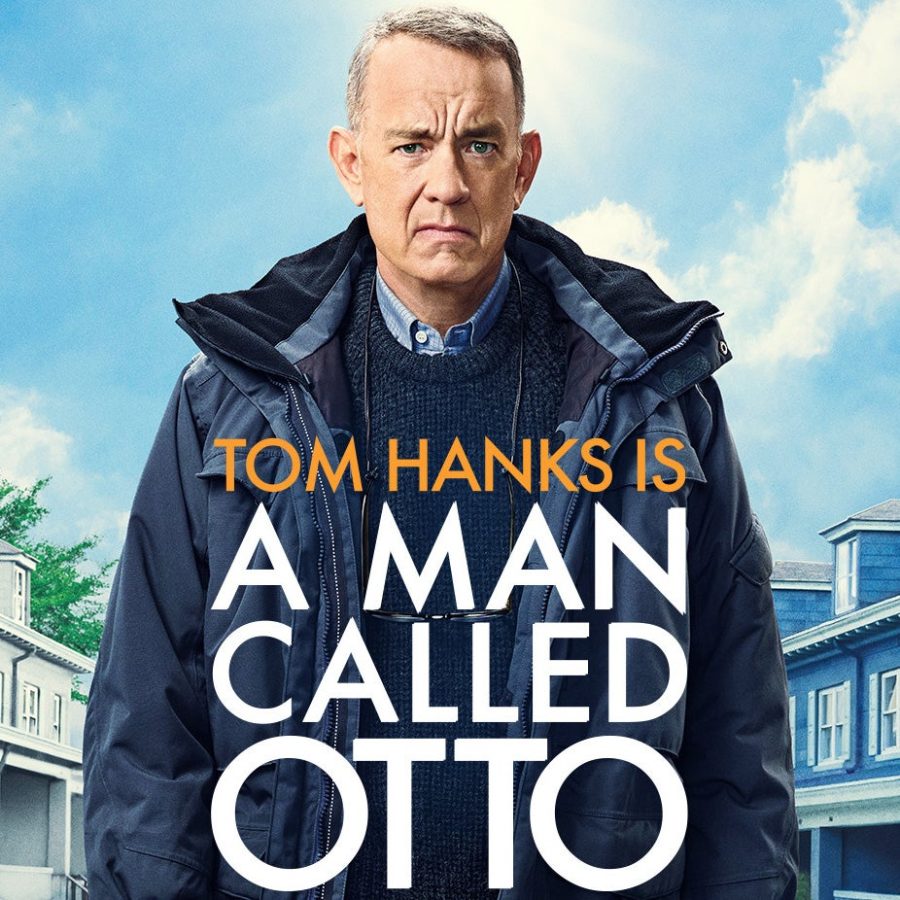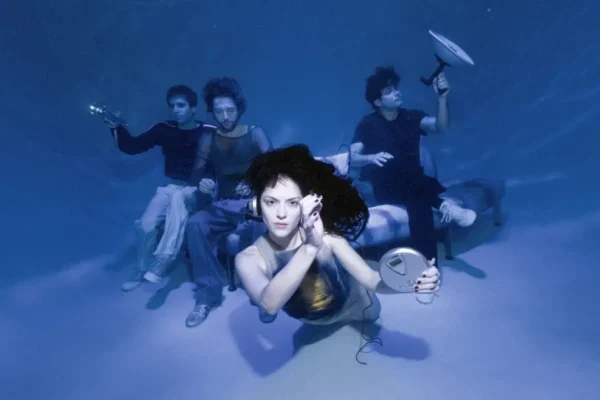Emotions run high for viewers
Movie Review: A Man Called Otto
A Man Called Otto is movie directed and starring Tom Hanks. The movie is based on the book A Man Called Ove by Swedish author Frederick Backman. This movie is about an old man whose wife has died and he is completely hopeless and wants to join her. This comedy-drama faces topics such as suicide and death, and is very touching, but humorous at times.
Background and Exposition
This movie really resonated with me because it shows how much one person can affect a life, including the life and death of his wife and his actions to others. When he meets a pregnant neighbor named Marisol (Mariana Treviño), it completely changes his life.
There are these moments in his life where he is on edge of sorrow, but is interrupted by little specks of hope. Imagine for a second a cold, damp, dark room. That’s what his life feels like. As the movie progresses and he attempts suicide time and time again, he starts to realize that his life isn’t just his. He realizes that he can’t live thinking only about himself, and hating everyone and everything, and in his words, he “still has things to do.”
This movie is perfectly, completely, heartbreaking. From the different shots, to different characters who are introduced, everyone is important because they contribute little pieces of love in his life. All he wants to do is join his wife, and he remembers his past, and how much he loves her, but as time goes on, there’s still that part of him that thinks maybe it isn’t worth it.
The Suicide Attempts
The first suicide attempt you see is his hanging, and multiple times he attempts suicide, but this is the most definite one. He was ready to die, but as each attempt is foiled by another person, he is encouraged by thoughts of what his wife would really want. The symbolism of the line”…take my hand” leads back to his wife and he realizes that life isn’t black and white like we often think it is. The gray area is all the people who love you, and all the people that care about you, even if you think there is nobody.
Relationships of characters
This movie is especially heartbreaking, between the countless interactions between him and Marisol’s children, and him and Marisol herself. He goes from a bitter old man to a loving grandfatherly man for her kids, and he makes these changes because of Marisol. She recognizes the kindness underneath the shell of this depressed exterior, and she doesn’t let it stop her. She wonders and wonders what’s going on with him, looks out for him, and speaks to him.
He repeatedly tries to commit suicide, but there are these little pieces that start to mean a lot to him. One line he says is about his wife is “there was nothing before and there’s nothing after” and Marisol smiles, while crying and says, “I am something.” I think this is an incredible moment between characters, because she is reminding him again, that she loves him in a genuine way.
Deep down, in Otto’s heart, he envies Marisol and her husband Tommy (Manuel Garcia-Rulfo), who remind him of the relationship he had with his own wife, but he also loves that about them. Marisol loves to cook, and her husband is along for the ride. That’s why he realizes that he can play a part in their life and the life of their children, as well.
Character Development
At the beginning Otto has one goal: to die. And he tries hard to kill himself, but realizes through these little golden specks of joy that it’s a lot harder than he thought. Adopting a cat, meeting his neighbors, and even enjoying good food and a new culture, he discovers that there are things worth living for.
There is a scene when he is speaking at his wife’s (Tanya’s) grave and he says, “It’s a lot harder to…[kill myself] then I thought.” and the camera pans to his new cat who cutely peaks his head out of the cardboard box next to him. This shows the changes throughout Otto’s life. He sees these things in his life interrupting him first as an obstacle, but he starts to accept that, maybe he should allow himself to get better, to move on.
These little specks of joy awaken him, and he realizes not everyone is an idiot, like he says, and that he, in his words, “still has things to do.”
Conclusion
This movie was heartbreaking to its core. It was beautifully made. From the unique camerawork, to the writing and acting, it was breathtaking. It perfectly represented grief and sorrow in its finest, and again depression. These “little specks of joy” are what make this movie so realistic to me. He is not only grieving and depressed, but sending a message to people who are suicidal: there is always more.
Happiness doesn’t just have a beginning and an end. There’s always that opportunity for light, and joy but, with that, comes struggle. Otto went through this heavily, thinking that he needed to be with his wife, when he really needed to live for himself. He needed to find a purpose to being here, which he found in other people. In the end he recognized that he was loved, and although he was a bitter old man at the beginning, people understood that there is more to him than that. I think that that’s what makes this movie completely and utterly, beautiful.

Gayle Hesser is someone who practices in the arts. She is someone who takes pride in her work, poetry and music. She plays electric guitar, and appreciates...





